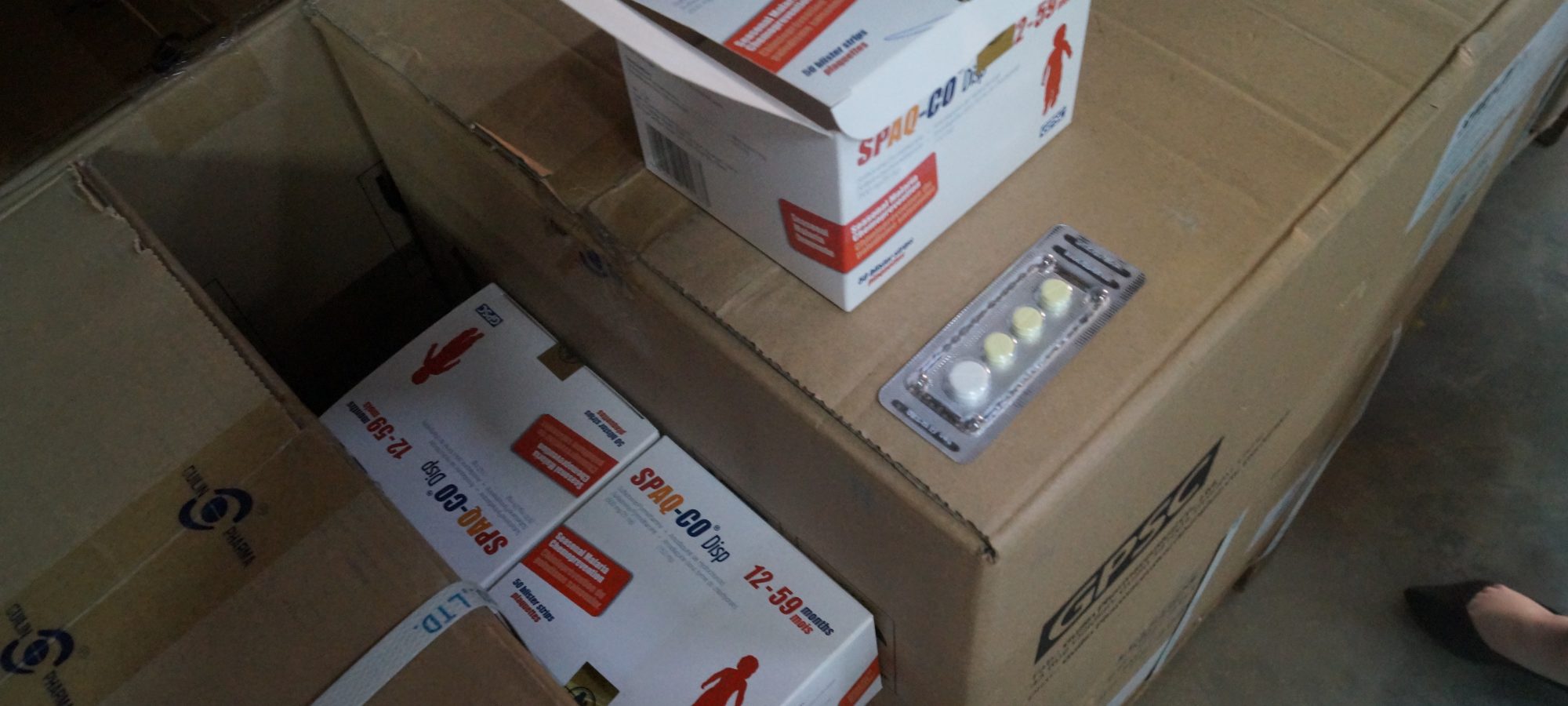During last year’s seasonal malaria chemoprevention (SMC) campaign, we outlined some of the steps that go into getting millions of doses of preventive treatment to millions of children across the Sahel. It underlined the complexity of carrying out a mass drug distribution campaign and the amount of planning that is required to ensure success.
In 2020, Malaria Consortium expects to reach 12 million children — double the six million children reached last year — in three countries: Burkina Faso, Chad and Nigeria. This significant scale-up is taking place despite added challenges caused by the COVID-19 pandemic. Working with governments and other partners, Malaria Consortium has adapted the SMC programme to respond to two core risks: (1) that the pandemic may result in the focus being diverted away from people affected by malaria and (2) that any mass drug distribution undertaken at this time could contribute to new COVID-19 infections. In this article, we outline these challenges and the solutions we found to ensure the 2020 SMC campaign could go ahead as anticipated.
Global supply chain challenges
COVID-19 has disrupted and continues to impact global supply chains worldwide. While the procurement of drugs for the SMC campaigns begins around one year before they are due to be distributed, our team encountered shipping delays. Most SMC drugs are procured from a manufacturer in China — the first country to be affected by the pandemic. The drugs that were ordered were manufactured on time, but shipping delays meant they could not leave Chinese ports, delaying their arrival in the Sahel. Once they arrived at ports in Abidjan, Côte d’Ivoire, Port Harcourt in Nigeria and Douala in Cameroon, the team then navigated import changes designed to mitigate the spread of disease. Despite these challenges, our team worked closely with authorities and other organisations implementing SMC to ensure the distribution campaigns could go ahead on time and at an increased scale.
Quantifying personal protective equipment needs
In order to mitigate the risk of SMC programmes contributing to an increase in COVID-19 infections, Malaria Consortium played a leading role in defining a global standard to which SMC could be implemented at scale in a safe way. Each country in which our SMC programme operates has differing standards around PPE requirements and quality and so our team sought to understand the local situation, including existing supplies of PPE. Once this was complete, the team could make a more accurate estimate of PPE quantities needed for each country and begin procurement. This task was also aided by strategic partnerships with government and other organisations to build a complete image of the situation.
Global PPE stocks have been stretched by the unprecedented demand caused by the pandemic and so even when the quantification process was complete, sourcing PPE was a challenge. The team worked around the clock to source international, regional and national suppliers of masks, hand sanitisers, soap and other protective equipment. The team’s success in procuring sufficient amounts of PPE meant that the teams involved in SMC distribution — from transporting SMC drugs to the community distributors and beneficiaries in the communities — were not put at greater risk of COVID-19 transmission.
Assuring quality and value for money
While the team succeeded in procuring the necessary amounts of PPE to allow SMC distribution to take place, an additional challenge was ensuring the quality of these items while also retaining value for money. Due to the increased global demand, our operations team observed that many items on the market were sub-standard or even fake. For example, there were reports of hand sanitiser, which has to be produced to a particular standard in order to be effective, being sold with high levels of toxic methanol in place of ethanol which is more expensive. Our team worked to confirm standards before procurement was completed.
Procurement was also affected by increased demand for freight services. A number of airports around the Sahel region were closed and routine flights were not taking place, in addition to delays at seaports. It was possible to charter air freight to ensure it arrived in the correct locations on time, but this would have led to a significant increase in costs. However, the team again worked in partnership with global and national freight agents and costs were kept within budget as planned at the start of the year.
You can also learn more about the complete process for how SMC drugs reach communities across the Sahel
Ashley Giles was speaking to Matthieu Baudry, Malaria Consortium’s Supply Chain Coordinator and Andrew Parkes, Malaria Consortium’s Global Operations Manager
